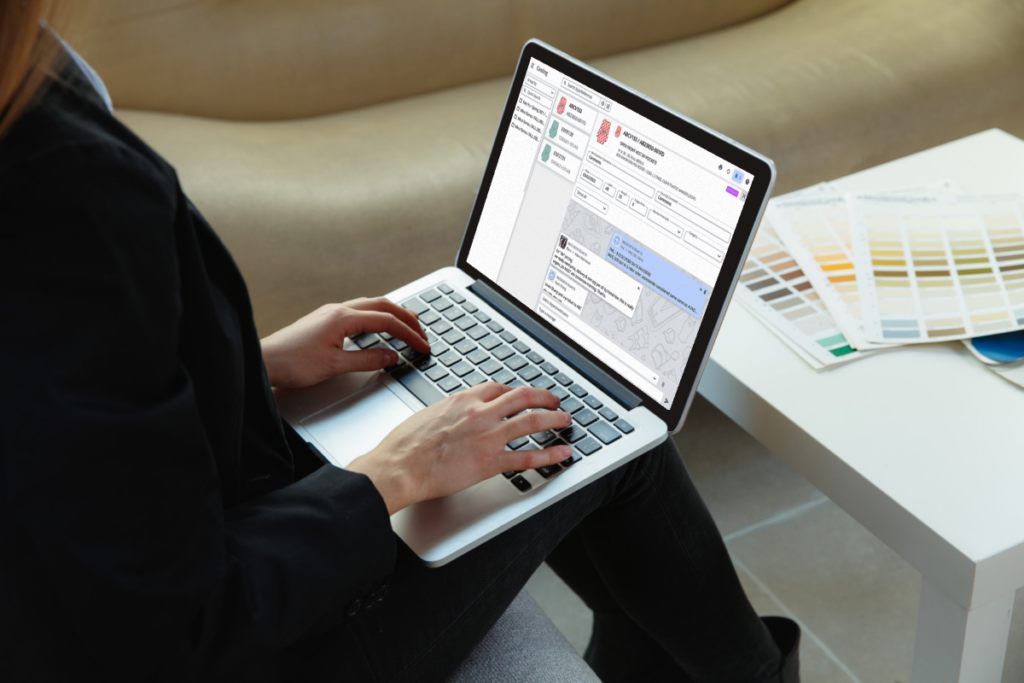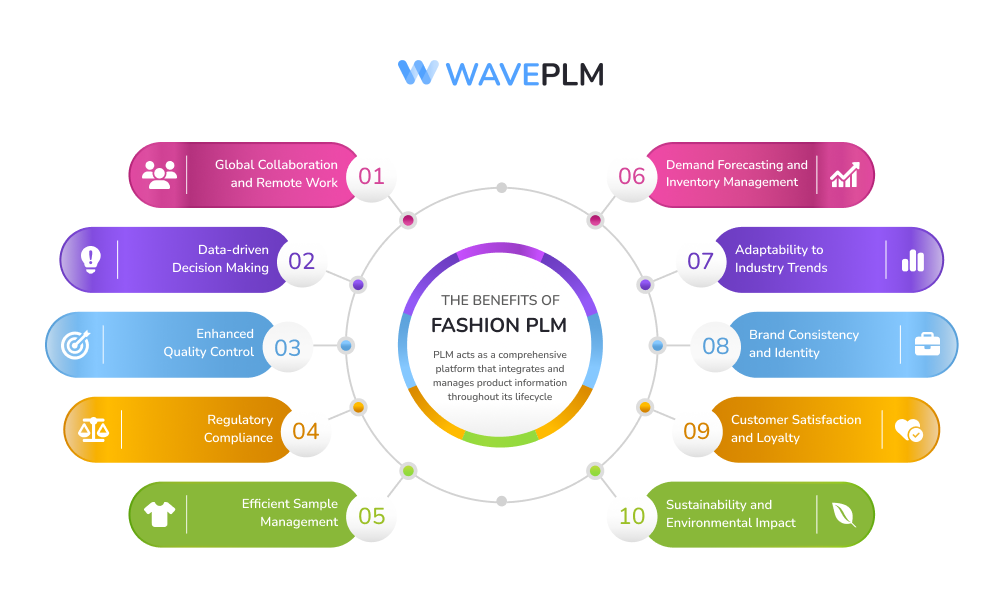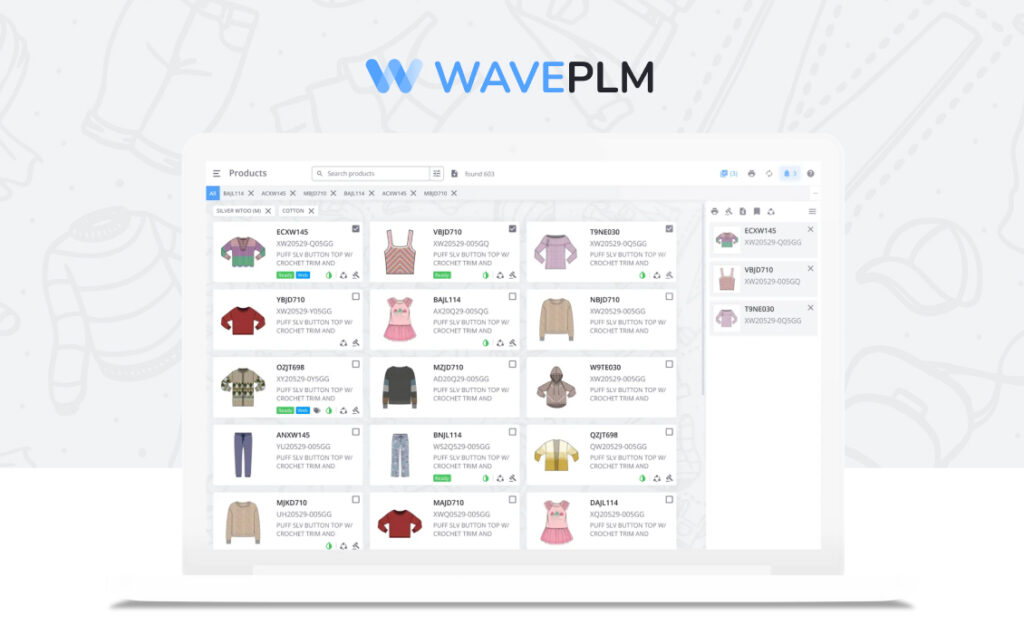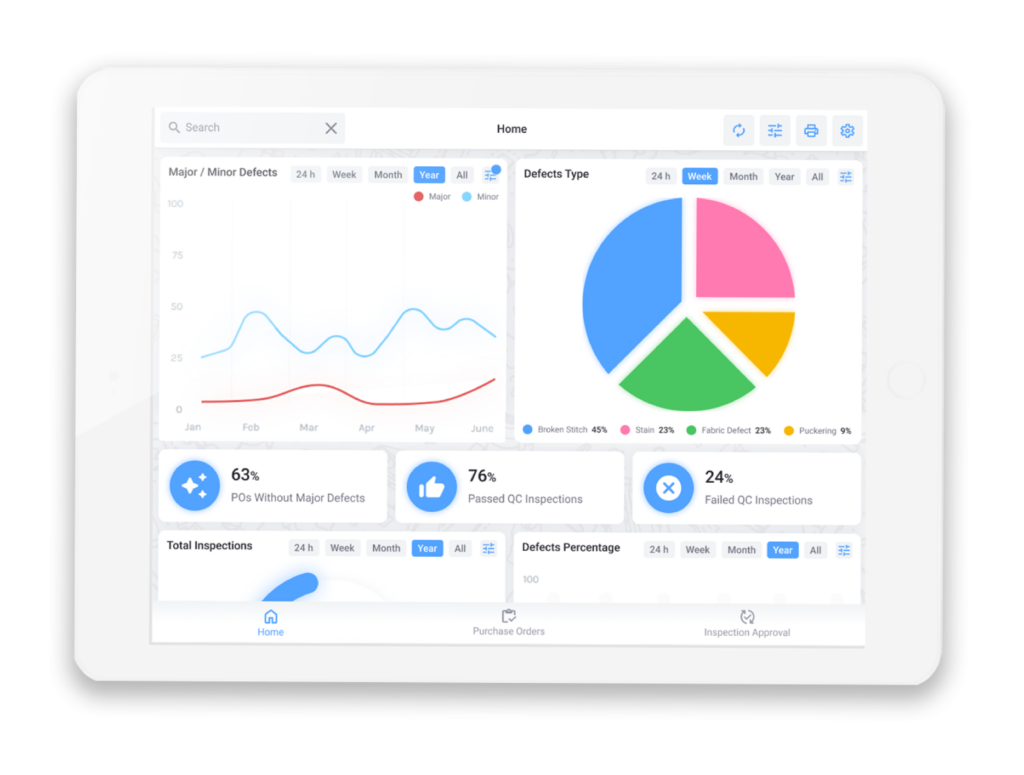
In the ever-evolving landscape of the fashion industry, staying ahead of the curve is essential. As technology continues to reshape various sectors, the fashion world is not exempt.
One of the key technological advancements making waves in the industry is Product Lifecycle Management software (PLM). In this article, we will explore the impact of PLM systems on the fashion apparel production lifecycle management and its benefits.
Product Lifecycle Management is a holistic software solution designed to manage the entire lifecycle of a product – from ideation and design to production, distribution, product data management, and beyond.
The collaborative nature of a fashion PLM facilitates seamless communication and integration among various departments, breaking down silos and creating a centralized hub for all product-related information.
With PLM, fashion brands and designers can easily manage and track product data, including sketches, fabric swatches, manufacturing specifications, tech packs and other business processes. It facilitates seamless communication between designers, pattern makers, sourcing teams, and manufacturers, leading to enhanced collaboration and reduced errors.
Understanding the Fashion Lifecycle
Before delving into the world of PLM software, it’s crucial to grasp the intricacies of the fashion product’s lifecycle. Traditionally, the journey from design conception to the final product reaching consumers involves multiple stages. These stages include design, pattern making, sample production, manufacturing, distribution, and retail.
However, this linear approach often results in inefficiencies, delays, and a lack of transparency. With the ever-increasing demand for fast fashion and consumers expecting new styles at an accelerated pace, the need for a more streamlined and agile process has become imperative.
Enter Fashion PLM Software
Fashion PLM acts as a comprehensive platform that integrates and manages product information throughout its lifecycle. In the context of the fashion industry, it means handling everything from initial design concepts to the production and distribution of the final garment. This end-to-end solution is transforming the process management capabilities and the way fashion businesses operate.

The Benefits of PLM in Fashion
1. Global Collaboration and Remote Work
In an increasingly interconnected world of digital transformation, fashion businesses often collaborate with teams and suppliers globally. PLM software facilitates seamless collaboration, enabling teams from different parts of the world to work on the same project in real time. This becomes especially crucial in an era where remote work is becoming more prevalent, allowing teams to stay connected and maintain productivity regardless of their physical location.
2. Data-driven Decision Making
PLM systems centralize vast amounts of data related to product design, development, and production. This data can be leveraged to gain valuable insights into consumer preferences, market trends, and the performance of previous designs. By making informed decisions based on concrete data, fashion businesses can reduce the risk of producing unpopular or unsuccessful products and optimize their supply chain collaboration strategies for greater success.
3. Enhanced Quality Control
Maintaining product quality is paramount in the fashion industry. PLM system allows for rigorous quality control by providing tools to monitor and manage every aspect of the entire product lifecycle management. From the selection of materials to production processes, businesses can establish and enforce quality standards, reducing the likelihood of defects and ensuring that the final product meets or exceeds customer expectations.
4. Regulatory Compliance
The fashion industry is subject to various regulations, especially concerning materials, labour practices, and environmental standards. PLM software helps businesses stay compliant with these regulations by providing a centralized platform for tracking and managing the relevant information. This not only ensures legal adherence but also aligns with the growing consumer demand for ethically and sustainably produced fashion.
5. Efficient Sample Management
In the traditional fashion production cycle, creating physical samples can be time-consuming and costly. PLM software allows for the creation and management of digital samples, reducing the need for physical prototypes. This not only accelerates the design and product development process but also contributes to sustainability efforts by minimizing material waste.
6. Demand Forecasting and Inventory Management
PLM software enables fashion businesses to analyze historical data and market trends, aiding in more accurate demand forecasting. By understanding consumer preferences, product product-related data and predicting market demands, businesses can optimize inventory levels. It helps to reduce overstock or understock situations. This, in turn, leads to better cost management and increased overall efficiency in the supply chain.
7. Adaptability to Industry Trends
The fashion industry is notorious for its rapid changes and trends. PLM software provides a level of agility that allows businesses to adapt quickly to emerging styles and consumer preferences. The ability to make rapid adjustments to designs, materials, and production schedules ensures that fashion businesses remain competitive and responsive to the dynamic nature of the industry.
8. Brand Consistency and Identity
Maintaining a consistent brand identity is crucial for fashion businesses. PLM software helps enforce brand guidelines by providing a centralized repository for design assets, templates, and style guides. This ensures that all team members and collaborators work within the established brand parameters, contributing to a cohesive and recognizable brand identity.
9. Customer Satisfaction and Loyalty
By streamlining processes, reducing errors, and delivering products to market faster, PLM software contributes to increased customer satisfaction. Satisfied customers are more likely to become loyal patrons, contributing to repeat business and positive word-of-mouth marketing. The ability to meet customer expectations consistently is a key driver of long-term success in the fashion industry.
10. Sustainability and Environmental Impact
As sustainability becomes a focal point in the fashion industry, PLM software plays a crucial role in managing and reducing the environmental impact of production. By tracking and optimizing material usage, waste, and energy consumption, fashion businesses can align with sustainability goals. It helps them meet the expectations of environmentally conscious consumers.
11. The Integration of Quality Control
Quality management is a critical aspect of the fashion industry, ensuring that products meet the standards expected by both the brand and the consumer. PLM software is now playing a pivotal role in integrating quality control measures into the entire product lifecycle. From defining quality standards during the design phase to monitoring production processes and inspecting finished products, PLM ensures that every step of the way adheres to stringent quality control protocols.
By incorporating quality control into PLM, fashion brands can identify and address issues early in the production process, reducing the likelihood of defects and improving overall product quality. This not only enhances customer satisfaction but also helps in building a reputation for reliability and excellence in the market.

The Rise of Wave PLM
Among the myriad cloud-based PLM software solutions available, Wave PLM stands out as a comprehensive and user-friendly option tailored specifically for the fashion industry. Here’s why Wave PLM is gaining recognition and becoming the preferred choice for many fashion businesses.
1. User-Friendly Interface
Wave PLM boasts an intuitive and user-friendly interface that minimizes the learning curve for users. This is crucial in an industry where quick adoption of new technologies is essential for maintaining a competitive edge.
2. Customization for Fashion Workflows
Recognizing the unique processes within the fashion industry, Wave PLM is designed to accommodate the specific workflows of apparel production. This ensures that the change management software aligns seamlessly with the way fashion businesses operate.
3. Collaboration and Communication Features
Wave PLM prioritizes collaboration, offering features that facilitate communication among team members, suppliers, and other stakeholders. Real-time updates and notifications in both web-version and Wave PLM Apps for IOS and Android keep everyone on the same page. It reduces the chances of errors and delays.
4. End-to-End Coverage
From design conception to distribution, Wave PLM covers the entire fashion apparel production cycle. This means businesses can rely on a single platform for all their needs, eliminating the need for multiple software solutions.
5. Three-Month Free Demo
Wave PLM stands behind its product with confidence. It offers a 3-month free demo for businesses to experience the product introduction and benefits firsthand. As a result, this commitment to customer satisfaction allows businesses to assess the software’s suitability for their specific requirements.
6. Continuous Updates and Support
The fashion industry is dynamic, and Wave PLM understands the importance of staying up-to-date. Regular updates (usually twice a month) and robust customer support ensure that businesses using Wave PLM always have access to the latest features and assistance when needed.
7. Effective Quality Management
Wave PLM goes above and beyond by offering an additional feature — a dedicated Quality Control App. This standalone application within the Wave PLM ecosystem provides specialized tools and functionalities focused solely on ensuring and enhancing product quality. Overall, seamlessly integrated with the core PLM platform, this Quality Control App allows fashion brands to streamline their quality control processes further. It reinforces Wave PLM’s commitment to delivering comprehensive and effective solutions for the industry.

Conclusion
Wave PLM, in particular, stands as a beacon in this transformative landscape. Its user-friendly interface, industry-specific features, and unwavering commitment to customer satisfaction make it the preferred choice for fashion businesses seeking to stay ahead in an increasingly competitive environment.
Moreover, for those looking to shape the future of their fashion enterprise, the 3-month free demo of Wave PLM provides a risk-free opportunity to experience firsthand the revolutionary impact of a fashion PLM software. From collaborative design to sustainable practices, Wave PLM covers every aspect of the fashion lifecycle. It ensures that businesses can navigate the future with confidence and innovation.
To sum up, in a world where efficiency is paramount and innovation is the key to success, Wave PLM emerges as a powerful ally for fashion brands aspiring to set new standards and thrive in the dynamic landscape of the fashion industry. Embrace the future of fashion with Wave PLM – where efficiency meets innovation, and where the journey from concept to consumer becomes not just streamlined but a testament to the transformative power of technology in fashion.





Leave a Reply